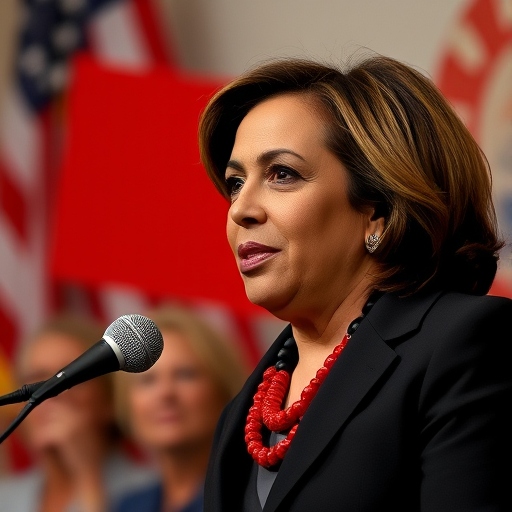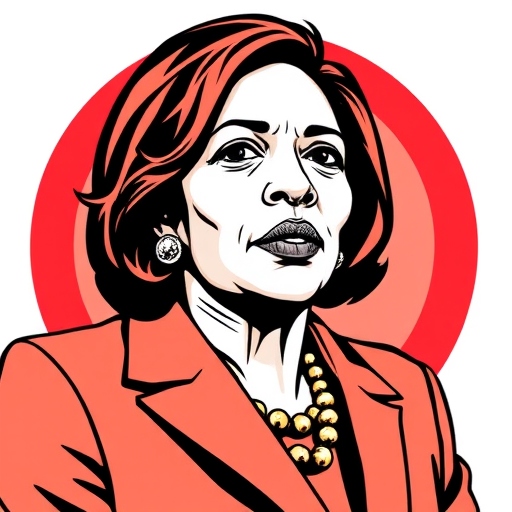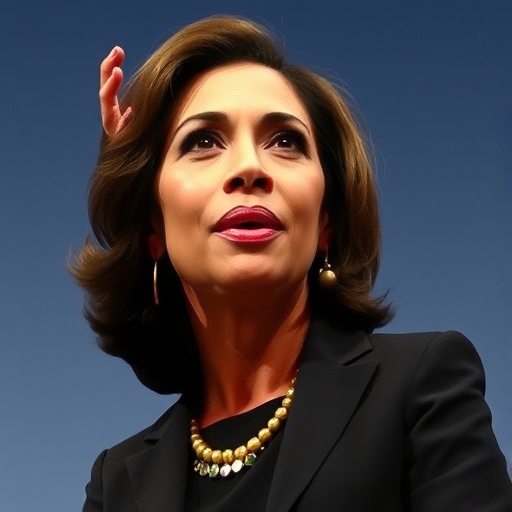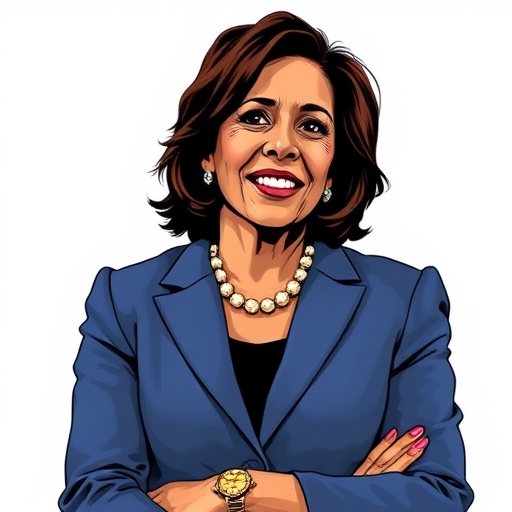
Kamala Harris Biography: The Journey of America’s First Female Vice President
Kamala Harris is a trailblazer, a leader, and a powerful voice in American politics. As the first female, first Black, and first South Asian Vice President of the United States, her life and career have been marked by breaking barriers and redefining what’s possible. From being a prosecutor in early stages to the first female Vice President of the United States, Kamala Harris stands for strength, perseverance, and devotion to justice. Let us look into her biography with a personal background, professional success, and how she continues to inspire American politics and people worldwide.
Kamala Harris Representation Gap in Leadership
There was a very long-standing problem of the representation gap when it comes to leadership. History in the United States is quite an unevenly shaped, one-sided population demographic. Nearly over two centuries back, White House leaders were a sea of white males in office as they are vice presidentials. It shows in many areas not only the absence but in what problems and issues came out that could be addressed. For decades, there are not many women or other minorities to look up to for role models in America’s highest political offices. The case therefore becomes one good example of how there must be diverse leadership because the presence of a particular leadership, like that of Senator Kamala Harris, gives inspiration for needed adjustments in making government even more representative.

The broad vision in the American leadership was not there because voices concerning such matters were not being heard and especially not regarding policies about women and minorities. Such issues as health equity, police reform, and economic disparities that people have faced for decades are something the nation has been lacking to receive a touch from an empathetic leadership, like they have had in some other matters. Without a role model, young women and minorities thought that the highest-ranked political positions were just slightly out of their league. Kamala Harris challenged and attempted to change the status quo in her career in public service. Symbolically, though, it’s because her presence in the White House represents the progress of the nation toward leadership that reflects the people it serves.
Kamala Harris: By the Trailblazing Road to the White House Early Life and Education
Kamala Devi Harris was born on October 20, 1964, in Oakland, California. Her parents were immigrants who were academics as well; her mother, Shyamala Gopalan, was a breast cancer researcher from India, and her father, Donald Harris, was an economics professor from Jamaica. While growing up, she had discussions about social justice, civil rights, and academics. She grew up in a predominantly Black neighborhood with parents who were committed to social justice.

She attended one of the historically Black colleges in Washington, D.C., Howard University. Her major was political science with a minor in economics to be her big shaping giving her strong roots in Black culture and history as well as making her better prepared for a career in law and politics. She earned her law degree and moved to the opposite end of the country west of the University of California, Hastings College of the Law, ready to give up her life for public service.
Kamala Harris Career in the Law and the District Attorney’s Office
Kamala Harris joined the Alameda County District Attorney’s Office and worked on prosecuting cases dealing with sexual crime and child exploitation. In 1998, she became one of the members of the San Francisco District Attorney’s Office, serving head of the Career Criminal Division. She was the first woman and the first person of color elected San Francisco District Attorney in 2003, running on a reform agenda to fight crime with toughness but fairness and to focus on justice rather than prosecution.
In the process of becoming DA, Harris initiated “Back on Track,” which is an offender program aimed at low-level reentry offenders. They make sure that they are not able to come back by offering job training and educational resources to these offenders. The outcome was so magnificent that this program received attention nationwide and has become a model throughout the United States for numerous reentry programs. Although some of her choices as DA did raise some controversy, especially where she opposed capital punishment, that was part of her historical status of being a pioneering reformer.
Kamala Harris Attorney General of California
2010-Kamala Harris emerged yet another history maker. For the first time in California, a woman and minority emerged elected as Attorney General of California. She remained committed to reform and fair accountability during this position. During her tenure as attorney general, her most significant achievement would be her negotiated $25 billion settlement with the country’s largest mortgage lenders in favor of millions of Americans affected by the foreclosure crisis. She fought for improved environmental laws, consumer rights in California, and programs for reentry of former inmates to help curb recidivism.

She is a big tech opponent for consumer data today in this new digital world and now recognized as privacy rights. She is serving as the Attorney General of the United States, working at a time when status quo answers are never okay and always upholding rule of law in the pursuit of equity and justice.
Kamala Harris A Strong Voice for Reform
Kamala Harris, senator in the United States of America with a mighty voice for change, California State Senate since 2016; first African American woman to ever be elected to the Senate; only the second Black woman, really, with distinction in committee hearings. Sharp questions question asking styles of Brett Kavanaugh, nominee to serve on the Supreme Court, and Jeff Sessions, later Attorney General for President Donald Trump. Just days after her election she made a name by asking pointed and sharp questions putting officials on record in ways that spoke directly to the American people.
Legislatively, Harris remained active in areas of criminal justice reform, health care access, environmental protection, and immigration rights. Harris was one of the original co-sponsors of the Green New Deal and filed a bill to increase teacher pay with federal funding. She also supported a bipartisan bill: the Justice for Victims of Lynching Act; she had actually sponsored the Act, that seeks to classify lynching as a federal hate crime and which has already been passed by the House during July 2020; and another leading bill she wishes to address is the Maternal CARE Act that seeks to fill the gap between the disparities in maternal health care of racial disparities.
In 2019, Kamala Harris embarked on a presidential campaign trying to secure a Democratic party nomination. Affordable healthcare climate change, and criminal justice reforms were some of her major issues while in a primary campaign. Though this was a promising campaign at one point, it did have its issues, and had ended by December of that year. Contesting while carrying her progressive policies marked her as very eligible by the Democratic party.
One more historical turn of journey to her is due to choices made by Joe Biden way back August of the year 2020 when he opted her as one chosen to be running a mate. In respect of race half-way due to being biracial, this woman has an impressive record of services rendered in the public sphere with all the power choice for stating on who will be an end as a country battling on much dire issues within realms of racial justice and equality for their people. Harris began to lead aggressive campaigns, pointing to accountability in governance as seen in Donald Trump on matters of policy in relation to immigration, healthcare, and the rights of people.
November 7, 2020: Election Night It was an election night to remember when the results would indicate Harris and Biden were winners; Harris would become the first woman, Black American and Asian American Vice President of the United States in the history of the United States.
Vice Presidency: Challenges and Initiatives

Kamala Harris became the Vice President on January 20, 2021. In the administration, the vice president has been handed and undertaken many issues-mostly the prominent ones of which include immigration, COVID-19 relief, voting rights, and foreign policy. Harris has never been scared by the issues that arose in areas such as immigration, where she was criticized concerning the lack of strategy by the administration concerning how they were to handle the crisis at the southern border.
Some of her other work includes dealing with the underlying causes of the migrations coming out of Central America. That’s to say, diplomatic efforts to reduce poverty, violence, and corruption in that region. She’s also been a vocal advocate on the subject of voting rights and helped collaborate with Congress to push through voter-enfranchisement legislation after the Supreme Court’s move to gut the Voting Rights Act.
That was not many easy rides being vice president for Kamala Harris. She was the first woman and first person of color, shouldering an enormous burden to that role. Time and again, she faced far more scrutiny than any colleague ever did. Yet still she clung to what she believed: championing important causes to Americans, taking the power of her role in elevating voices historically for too long silenced.
Kamala Harris Impact of Leadership
For case analysis, Kamala Harris is an interesting case of impact need concerning diversity representation and politics. This election about becoming vice president has made history, and that the real impacts are just what are happening:
- Restoration of Public Interest Harris restored a new generation of women leaders and especially races’ color women. Since the election of Harris, interest groups who train minority women are so interested in occupying political offices.
- Bending the Arc Toward Equity: Advocating as vice president as policies to address long-running inequities; criminal justice policy and health care policy are examples. Crisis work on maternal health policy illustrates this urgent need to bend the arc toward the equity in health care-in a time when Black women and Indigenous women are quite literally paying the price of the inequities.
- Common Interest: Harris’s ancestry as well as global background excite every diverse community around the globe, thus sending the mighty message that America finds life in diversity. Thus it has helped the United States to reach a very satisfactory progress over its relationship with all these nations, South Asia, and the Caribbean nations.
- More about Women’s Rights: With Kamala Harris in command, the problems arising about work issues, health care issues, and educational issues regarding women have come into the limelight. She has co-sponsored so many bipartisan bills that generally intend to support pay equity and secure rights of health care to women and more to participate in all areas of the society.
Kamala Harris’s is but one of the finer examples of what can happen with walls taken down and different voices being heard in the form of leadership. Here’s the way to get involved with supporting the change that Kamala Harris symbolizes:1. Stay Informed: Stay current on new legislation changes and initiatives undertaken by Kam
These are all-alike Harris and others similar leaders who are on a quest for equity. Issues at hand allow you to be appropriately informed in your decision-making and to contribute to that conversation.
- Vote: There must be the right to voting in all elections to be applied to each and every one of them. Voting will ultimately land you with leaders that care for your lifestyle in various offices through different levels of governments at which level that occurs.
- Advocacy groups Empowering diverse leaders Various organizations are also working in the direction of making a person more capable and granting opportunities that either exist or arise to help women or minorities become leaders in business or politics and to provide advocacy for such groups. There will then be a ready pipeline toward future leaders.
- Open Dialogue: Discussion on diversity and representation will help a person open his or her mind further. The story of Kamala Harris can trigger some constructive dialogue about how diversity is actually strengthening democracy.
Conclusion
The biography of Kamala Harris is beyond an individual success story. This is proof that perseverance and resilience do make the right representation count. It is an indelible stamp on America’s transformation from an immigrant child to the Office of Vice President of the United States. In such a crucial role in the White House, Harris breathes life into justice and equality, inspiring millions to believe and envision an America which delights in diversity and voices are heard.





